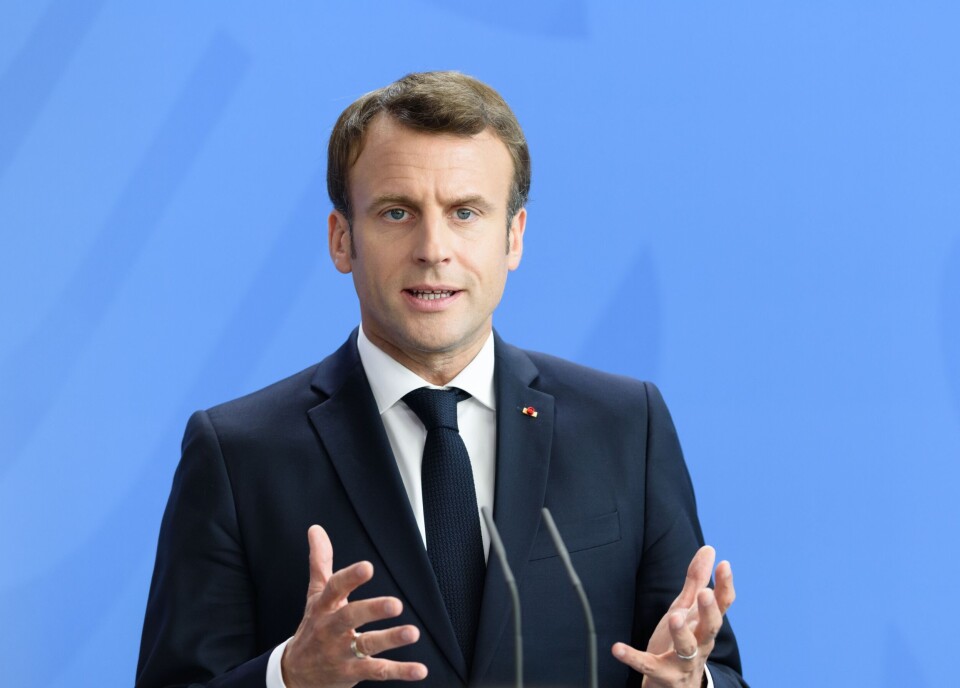-
How many Americans live in Paris - and where else are they choosing in France?
Over a quarter of all US nationals in France live in the capital city
-
Price rises for Netflix in France
The Standard (with ads) and Premium packages are increasing by €24 a year
-
Leclerc supermarkets to sell car fuel at cost price for Easter
The initiative will apply to diesel, petrol, and LPG
Six key takeaways from Macron’s TV interview on pension reforms
President Macron is adamant that the reforms are needed as he spoke on the eve of fresh strikes and protests over the controversial reforms

France's president Emmanuel Macron today (March 22) gave his first interview since controversial pension reforms - which include raising the minimum retirement age from 62 to 64 - were pushed through parliament without MPs voting on them.
Here is a summary of what Mr Macron said.
What happens to pension reforms now?
The government used article 49.3 to get the reforms past parliament, prompting anger from opposition parties and in the streets.
The use of the article prompted two no-confidence votes in Prime Minister Élisabeth Borne and her government.
Read more: French PM survives two no-confidence votes over pension reforms
Had MPs had backed either, it could have seen the government fall, forcing Mr Macron to appoint a new prime minister or even call new elections.
As neither succeeded the pension reforms moved to the next stage.
Mr Macron was asked in his TF1 interview whether the changes would become law on September 1, as planned.
He said they were following their “democratic path” by being scrutinised by France’s highest constitutional court, the Conseil constitutionnel.
Mr Macron indicated that after the court had given its view, the changes could become law “between now and the end of the year”.
Read also: Fury as French PM forces through pension reforms without a vote
Will Élisabeth Borne remain as France’s prime minister?
The use of article 49.3 had sparked criticism of Ms Borne. Mr Macron used the interview to confirm his support for her.
Ms Borne, he said, had his confidence and he praised her and the government for taking responsibility over the reforms.
Referring to the use of the article, Mr Macron said Ms Borne had, in effect, challenged parliament to present an alternative to the government’s [pension] reforms, "...there was no majority for [an alternative],” said Mr Macron.
Read also: Trains, planes and ports: How are the French strikes hitting travel?
‘We cannot accept either the factious or factions’
Mr Macron recognised the rights of the people on the streets protesting against the reforms, saying he respected the unions and the protests but that "when groups use violence to attack elected officials of the Republic (...) without rules, because they are not happy, then they are no longer acting in the spirit of the French Republic".
“We cannot accept either the factious or factions. We will not tolerate...groups which use violence", he said, on the eve of the ninth day of mobilisation on Thursday (March 23).
‘It is a necessity, not a luxury’
Much of the interview saw Mr Macron reiterate why the reforms were necessary.
"Do you think it makes me happy to make this reform? No," he said, stressing the fact that France had one of the lowest minimum retirement ages in Europe and that the number of French pensioners was set to swell by three million (from 17 to 20 million) by the end of the decade.
“This reform is not a luxury, it is a necessity," he said. "I committed to the reform from a sense of responsibility," arguing that those who oppose the changes would essentially be pushing for a budget deficit, and claiming that unions had not proposed any compromises.
Later he also said French people had become used to spending more and producing less.
“This...doesn’t work,” he said.
Attack on some businesses
Mr Macron also spoke of bringing in an 'exceptional contribution charge' on larger businesses as a response to the 'anger' witnessed.
He said he would be accelerating moves for this and would be asking his government to review in particular those businesses which had used record profits to buy back their own shares rather than use these to benefit employees.
He denounced such companies' cynicism saying they must distribute profits more in favour of workers. Details of how this would work were not given.
See also: Video appears to show police officer punching protester in France
Do you have any regrets, Mr Macron?
Towards the end of the interview, the French president was asked if he had any regrets over the pension reforms.
Mr Macron said his only qualm was not having been able to convince enough people that the changes are necessary.
“It is very difficult,” he said, referring to the reforms. “We are asking for a great effort from people.”
Union and opposition leaders were quick to condemn Macron's speech accusing him of being divorced from reality and further fuelling the unrest being demonstrated.
You can see the full interview in the video below.
Interview au 13h. pic.twitter.com/AtOcivFMo7
— Emmanuel Macron (@EmmanuelMacron) March 22, 2023
Related articles
Paris mayor kicks up a stink over bid to end bin collectors’ strike
























